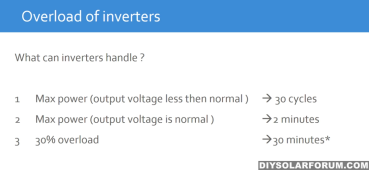n2aws
Solar Addict
- Joined
- Oct 24, 2022
- Messages
- 681
2 things:
#1) Since we're already on this subject.. I think everyone should have at least a will written up, regardless of age. And if you have any assets, you might even consider an estate plan.. It's uncomfortable for some to talk about their end.. but I spent 3 years trying to deal with probate for my parents house when they passed. I don't wish that on anyone.
#2) And more on-topic.. I guess I don't understand the real concern here about your loved ones being able to take over the solar. For the most part, I only mess with mine because I love to tinker. But I have the utmost confidence that.. should I stop messing with it today, it'd continue on problem free for years, barring any hardware issues. And for that, any solar installer should be able to look at it and say.. "Yep, charge controller died. needs replaced". We do things like firmware updates because we *want* to, but rarely (if ever) do we do them because we *have* to. we LIKE the bugfixes. we LIKE the new features and capabilities, but from a maintenance and stability perspective.. if the system is producing power, they aren't *required*.
So serious question, are some of these DIY systems that are being built on this forum really that fickle that it needs constant care and attention to the point that it's a legitimate concern that your loved ones wouldn't be able to care for/maintain it?
I showed my wife how to bypass the inverter. And bring it back online as a "just in case" thing, but realistically, she should never even need to do that.
#1) Since we're already on this subject.. I think everyone should have at least a will written up, regardless of age. And if you have any assets, you might even consider an estate plan.. It's uncomfortable for some to talk about their end.. but I spent 3 years trying to deal with probate for my parents house when they passed. I don't wish that on anyone.
#2) And more on-topic.. I guess I don't understand the real concern here about your loved ones being able to take over the solar. For the most part, I only mess with mine because I love to tinker. But I have the utmost confidence that.. should I stop messing with it today, it'd continue on problem free for years, barring any hardware issues. And for that, any solar installer should be able to look at it and say.. "Yep, charge controller died. needs replaced". We do things like firmware updates because we *want* to, but rarely (if ever) do we do them because we *have* to. we LIKE the bugfixes. we LIKE the new features and capabilities, but from a maintenance and stability perspective.. if the system is producing power, they aren't *required*.
So serious question, are some of these DIY systems that are being built on this forum really that fickle that it needs constant care and attention to the point that it's a legitimate concern that your loved ones wouldn't be able to care for/maintain it?
I showed my wife how to bypass the inverter. And bring it back online as a "just in case" thing, but realistically, she should never even need to do that.




